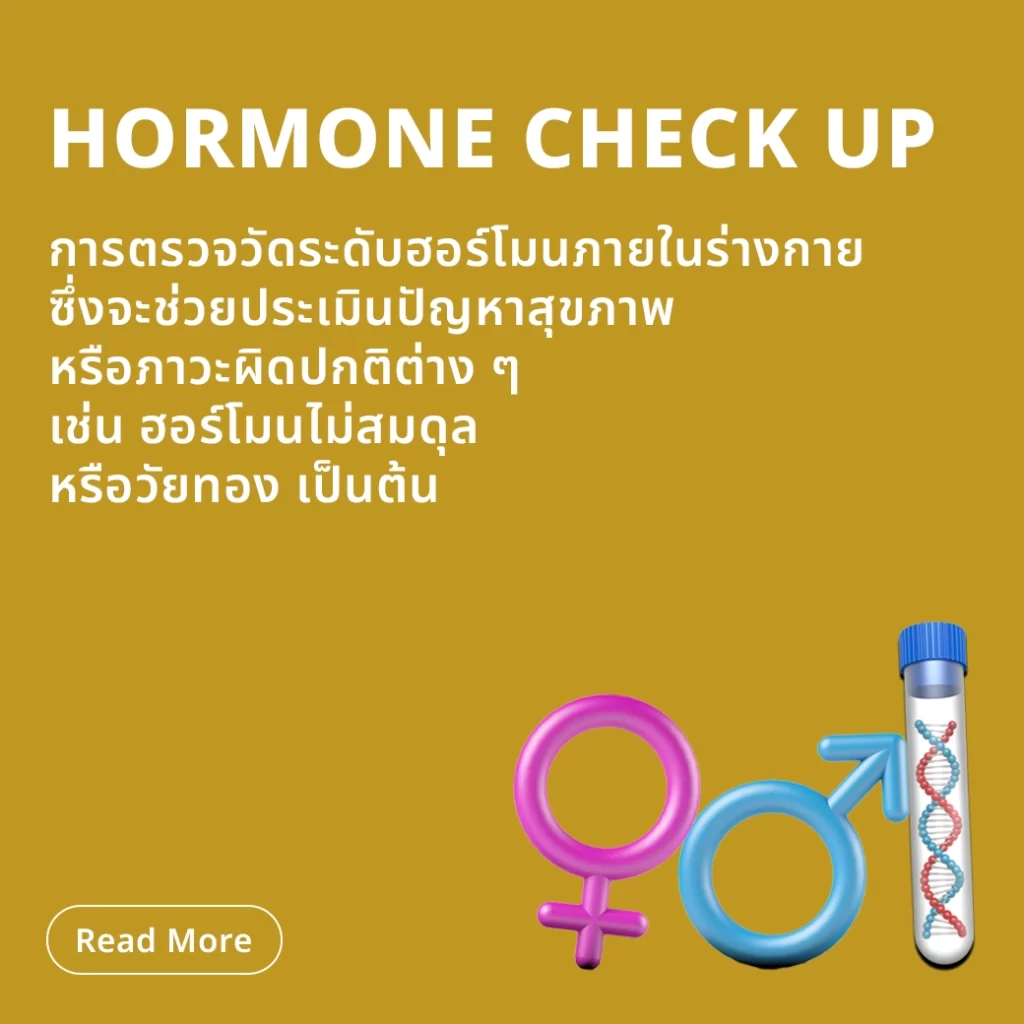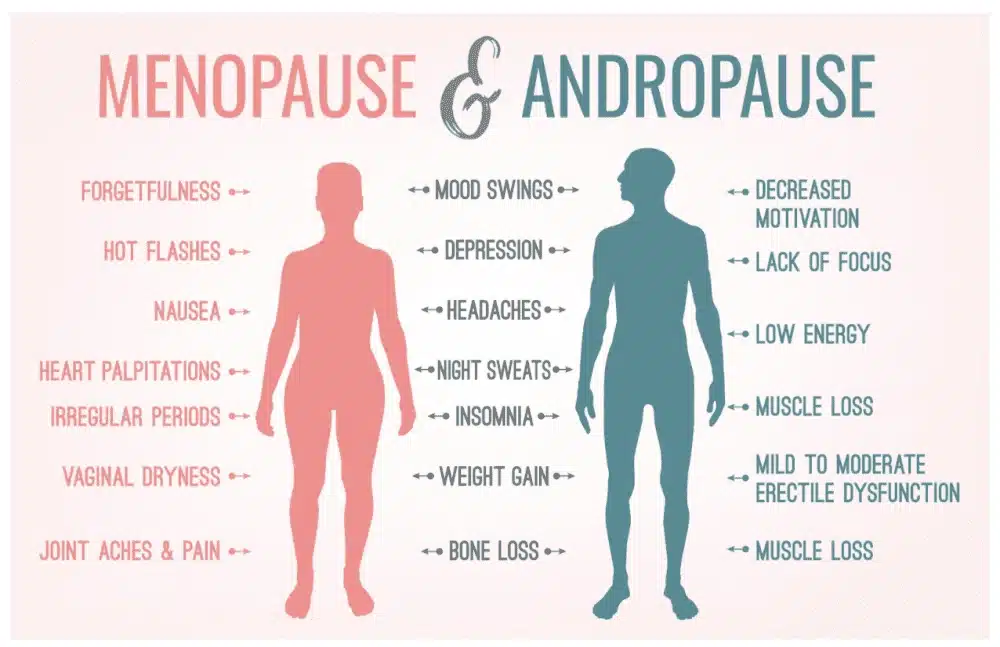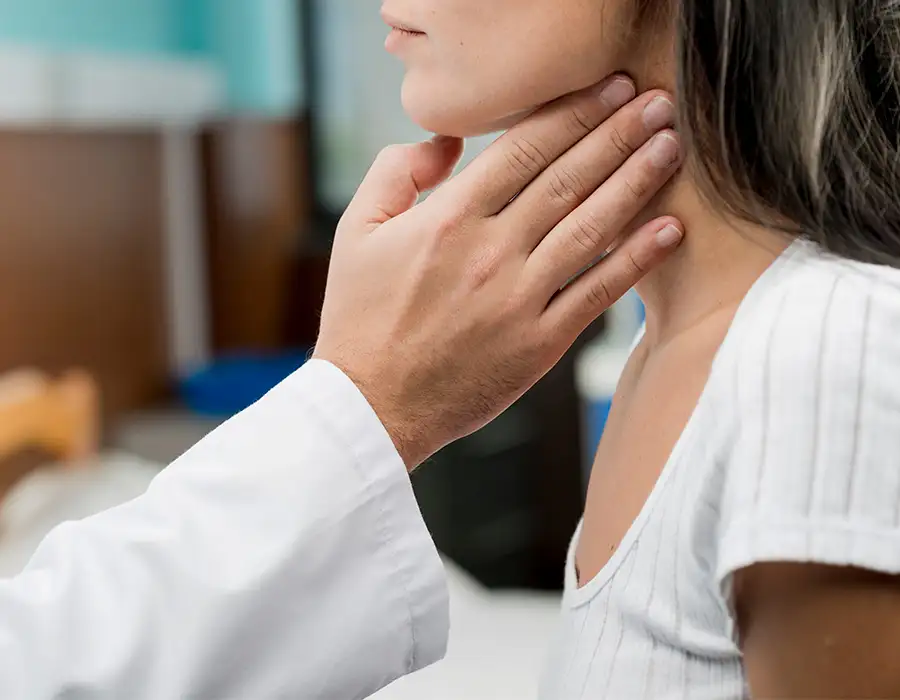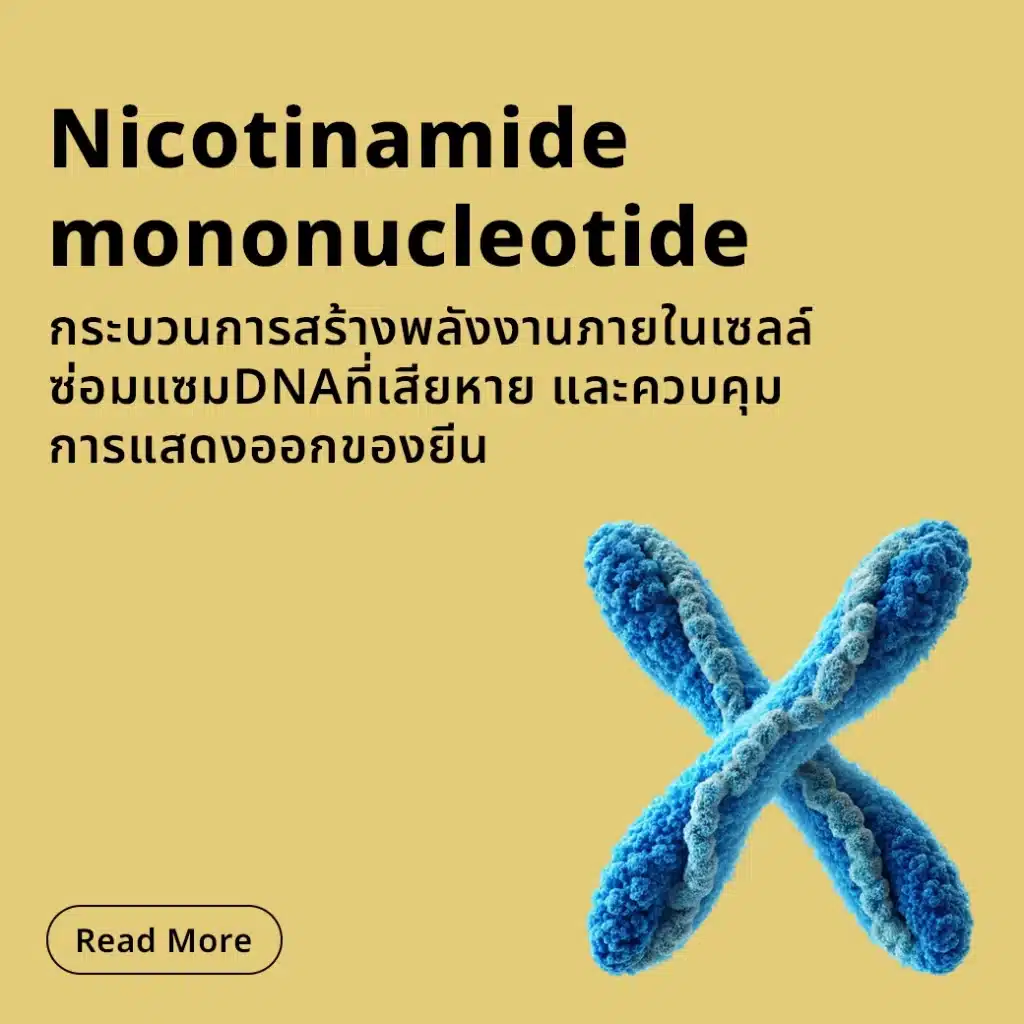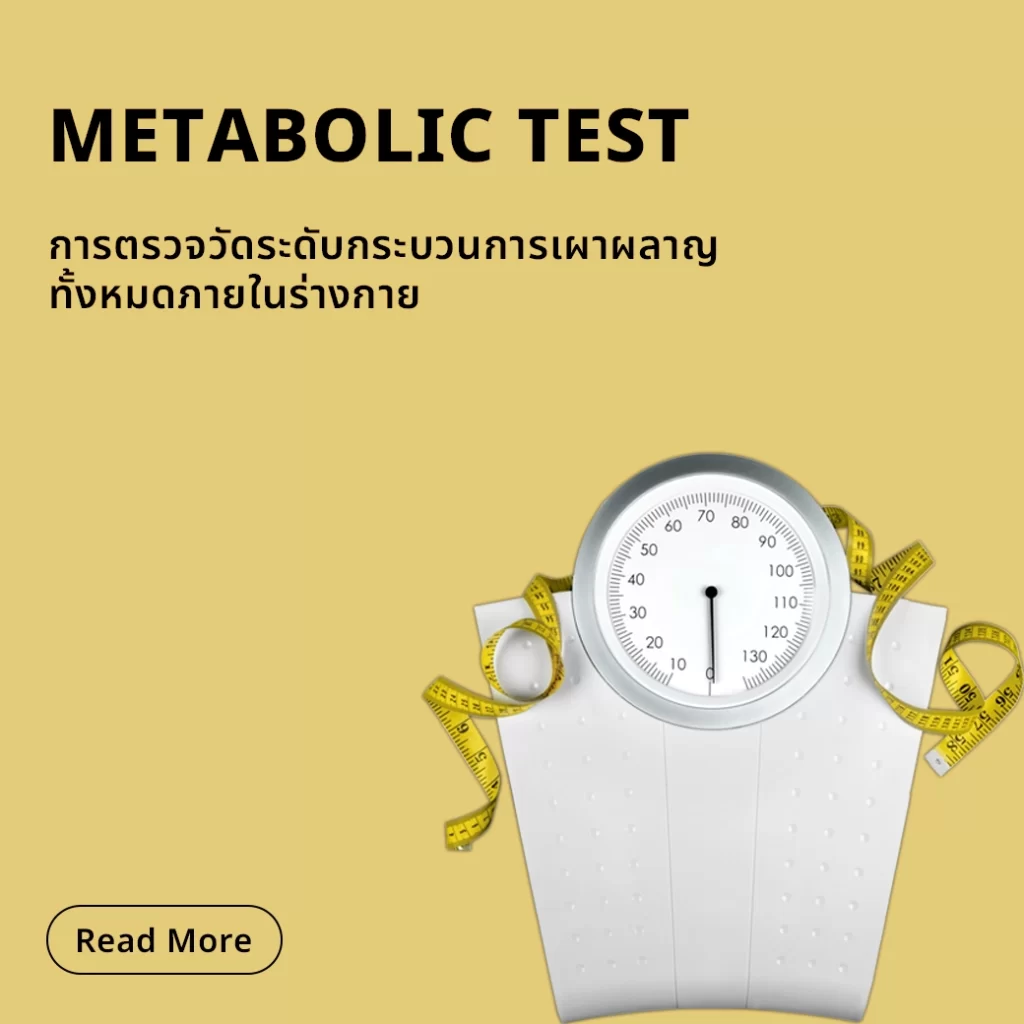HORMONE CHECK UP
Checklist: "Imbalanced Male Hormones"
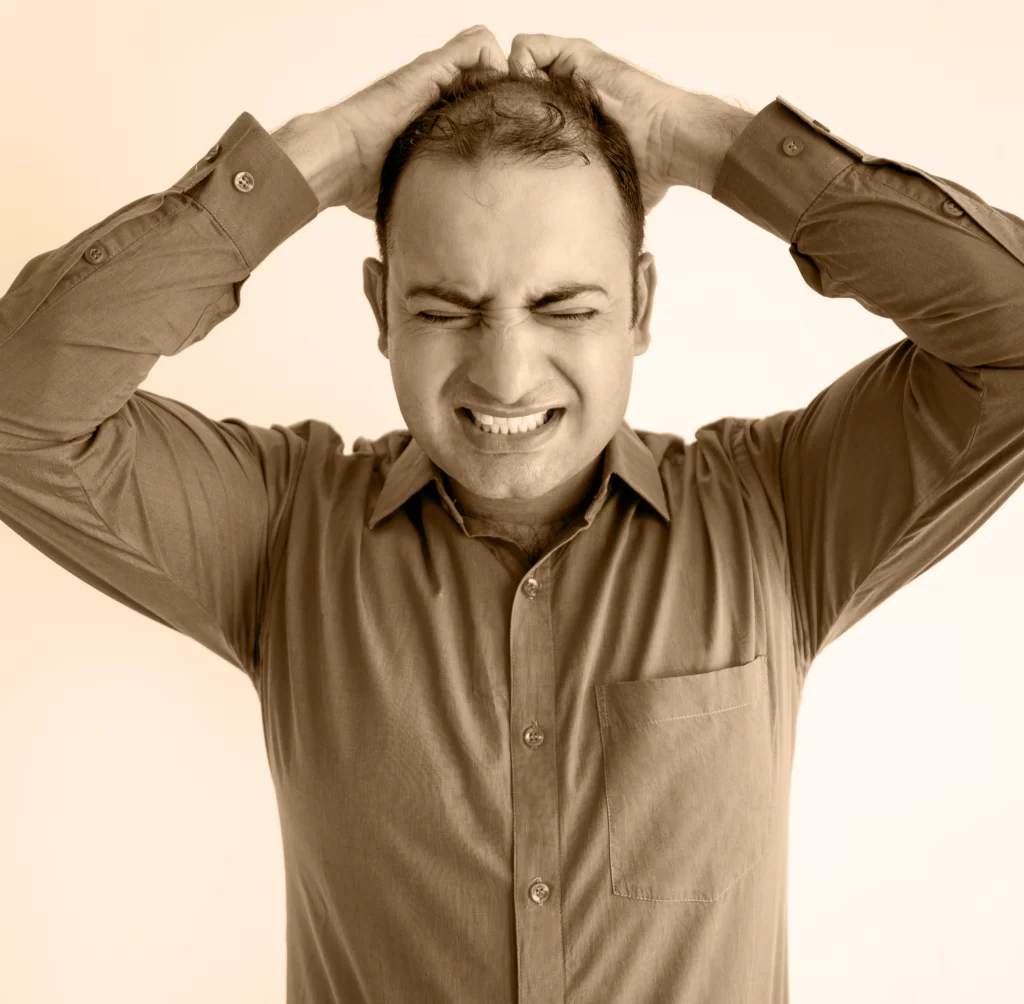
Signs of Male Hormonal Imbalance:
- Slow thinking, forgetfulness
- Easily irritated
- Fatigue, lack of energy
- Decreased libido
- Pessimistic outlook
- Reduced mental sharpness
- Decreased bone mass and muscle mass
- Weight gain, difficulty losing weight
- Insomnia
- Difficulty achieving full erection
- Lack of confidence
Checklist: "Imbalanced Female Hormones"
Signs of Female Hormonal Imbalance:
- Irregular menstrual cycles
- Difficulty sleeping, waking up frequently during the night
- Chronic acne
- Forgetfulness, mental lapses
- Excessive menstrual pain, bloating, swelling, weight changes during the menstrual cycle
- Constant fatigue and tiredness
- Stress and mood swings, easily irritated
- Easy weight gain, difficulty losing weight
- Headaches, migraines
- Vaginal dryness, lack of lubrication, frequent discharge
- Decreased libido

Why is hormone testing ?
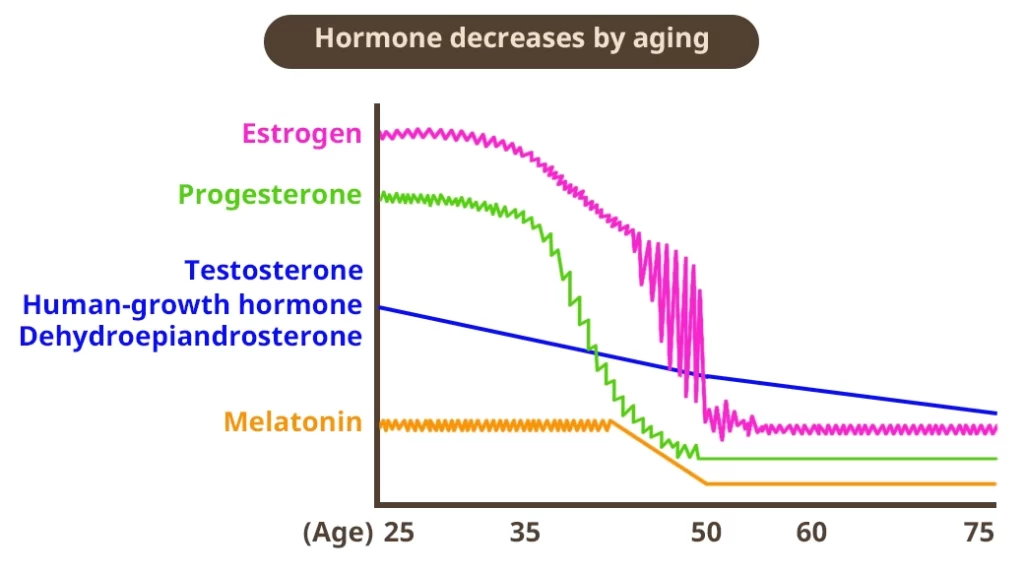
Does aging cause hormone levels to drop, or is it the drop in hormones that makes us age ?
“ผลลัพธ์ในภาพและวิดิโอเป็นประสบการณ์เฉพาะบุคคล… ผลลัพธ์การช่วยเรื่องสุขภาพของแต่ละคนอาจแตกต่างกัน”
What is a hormone?
A hormone is a chemical substance produced by glands or tissues in the body. It is carried through the bloodstream to cells and organs, helping to communicate between cells and regulate body systems to function properly.
The functions and importance of hormones:
Hormones act as chemical messengers between groups of cells, triggering growth, controlling the immune system, and managing various processes in the body at different stages of life. They also regulate metabolic processes in the body, such as the balance of water, blood pressure, body temperature, blood sugar levels, and control of reproductive systems.
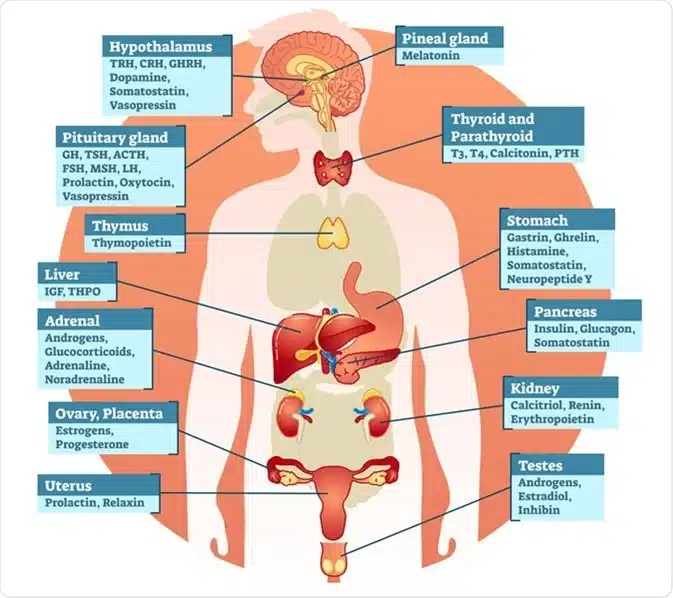
Human body hormones. Image Credit: VectorMine / Shutterstock
What are the types of hormones in the body?
There are 4 types of hormones:
- Peptide Hormones – These include growth hormone, parathyroid hormone, and insulin. Some protein hormones that combine with carbohydrates are called glycoproteins, such as tropic hormones and gonadotropins (LH, FSH, HCG, TSH). These hormones are also found in the posterior pituitary gland or some parts of the hypothalamus, such as oxytocin.
- Steroid Hormones – These are synthesized from cholesterol and include sex hormones (estrogen, testosterone), and hormones from the adrenal cortex, such as aldosterone and cortisol.
- Amine Hormones – These are small hormones composed of carbon, hydrogen, and nitrogen atoms, synthesized from the amino acid tyrosine. Examples include adrenaline, dopamine, and melatonin.
- Eicosanoids Hormones – These are lipid-derived hormones that play important roles in inflammation and other body processes.
What causes hormonal imbalance?
- Aging – As we age, hormone levels decrease naturally.
- Inadequate rest – Not getting enough sleep can affect hormone production.
- Chronic stress – Ongoing stress can disrupt the balance of various hormones in the body.
- Toxin accumulation – Exposure to harmful substances, such as heavy metals, can impact hormone levels.
- Nutrient deficiencies – Not getting enough essential nutrients can interfere with hormone function.
- Lack of exercise – A sedentary lifestyle can also contribute to hormonal imbalance.
Hormonal changes also occur at different stages of life. During early adulthood (ages 20-25), the body produces the highest levels of hormones. However, by the age of 30 and beyond, hormone production starts to decrease.
For men, this decrease may lead to changes in mood, sexual feelings, and a reduction in muscle mass and bone density.
For women, aging can cause mood swings, irregular periods, and a decrease in bone mass, increasing the risk of osteoporosis. Women may also experience issues with acne, especially around their menstrual cycle.
Symptoms of hormonal imbalance
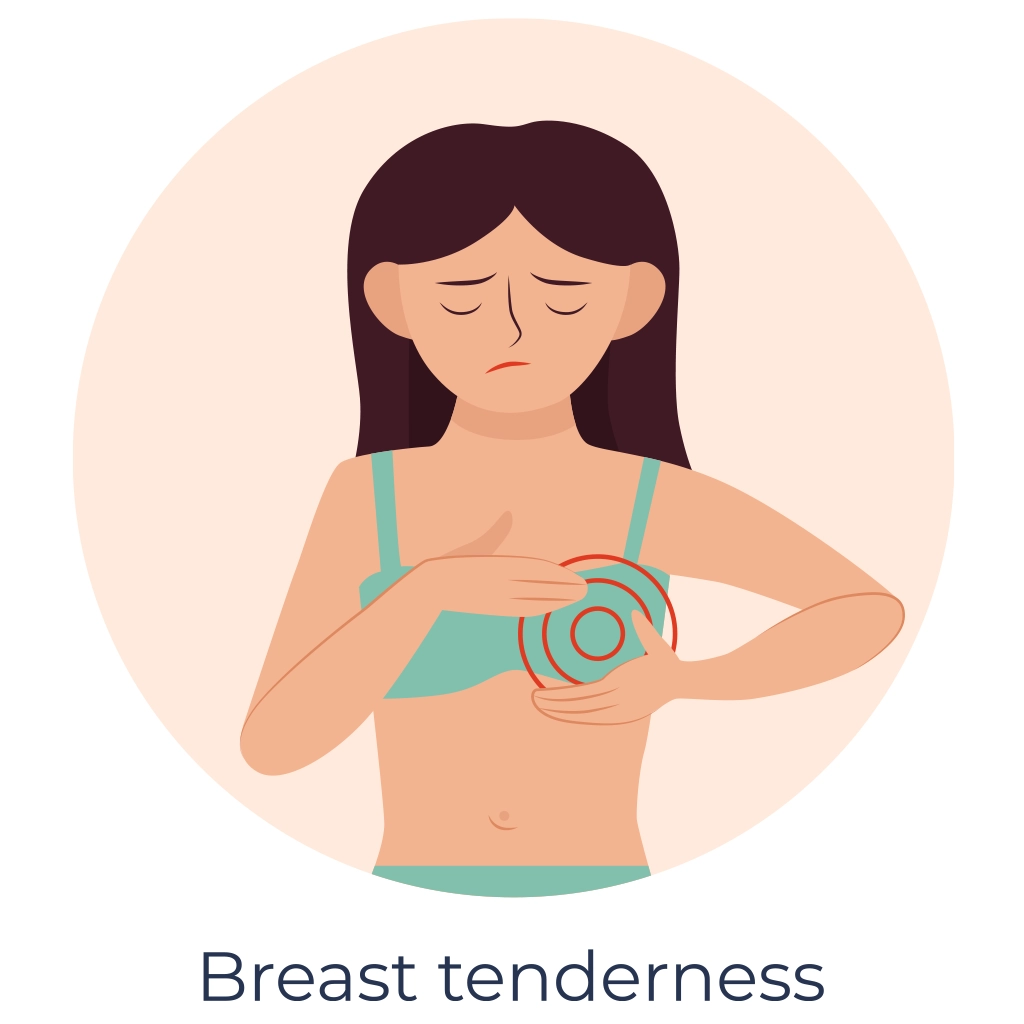
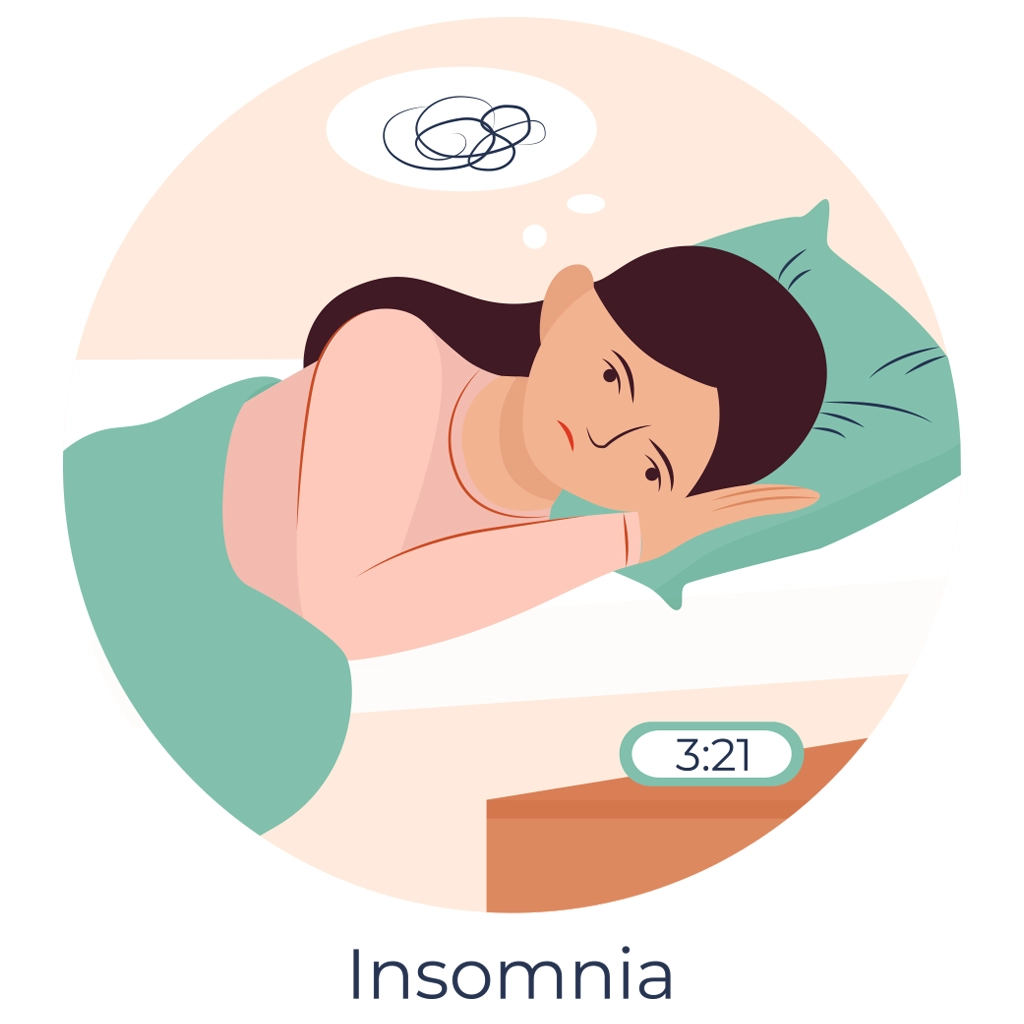
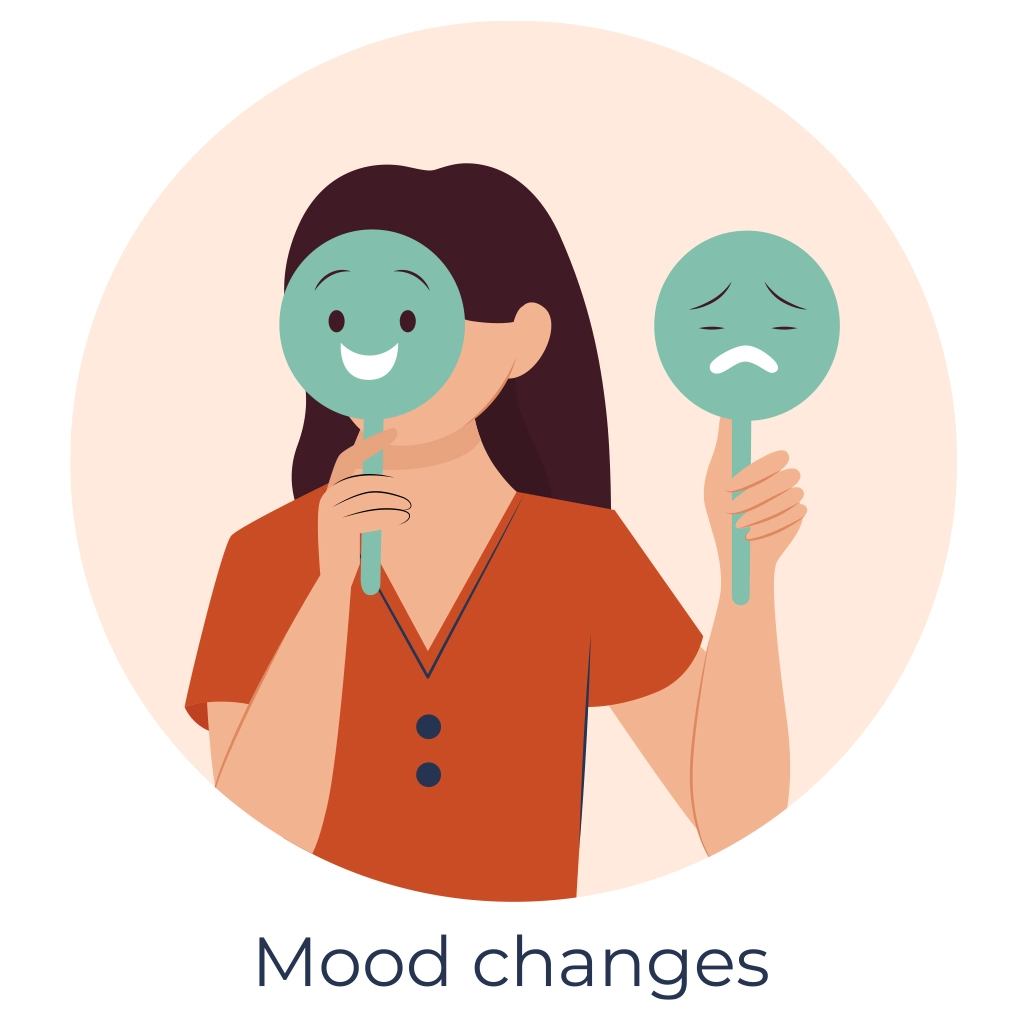
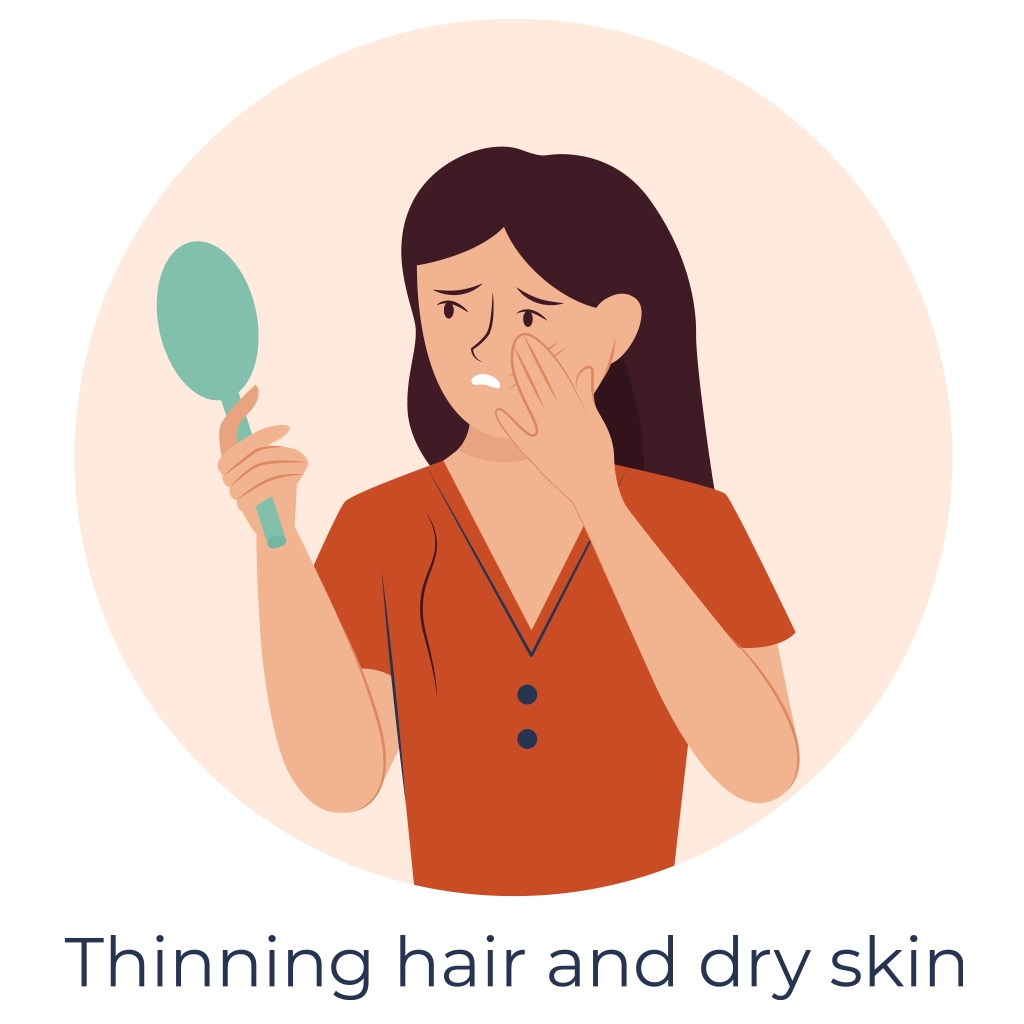
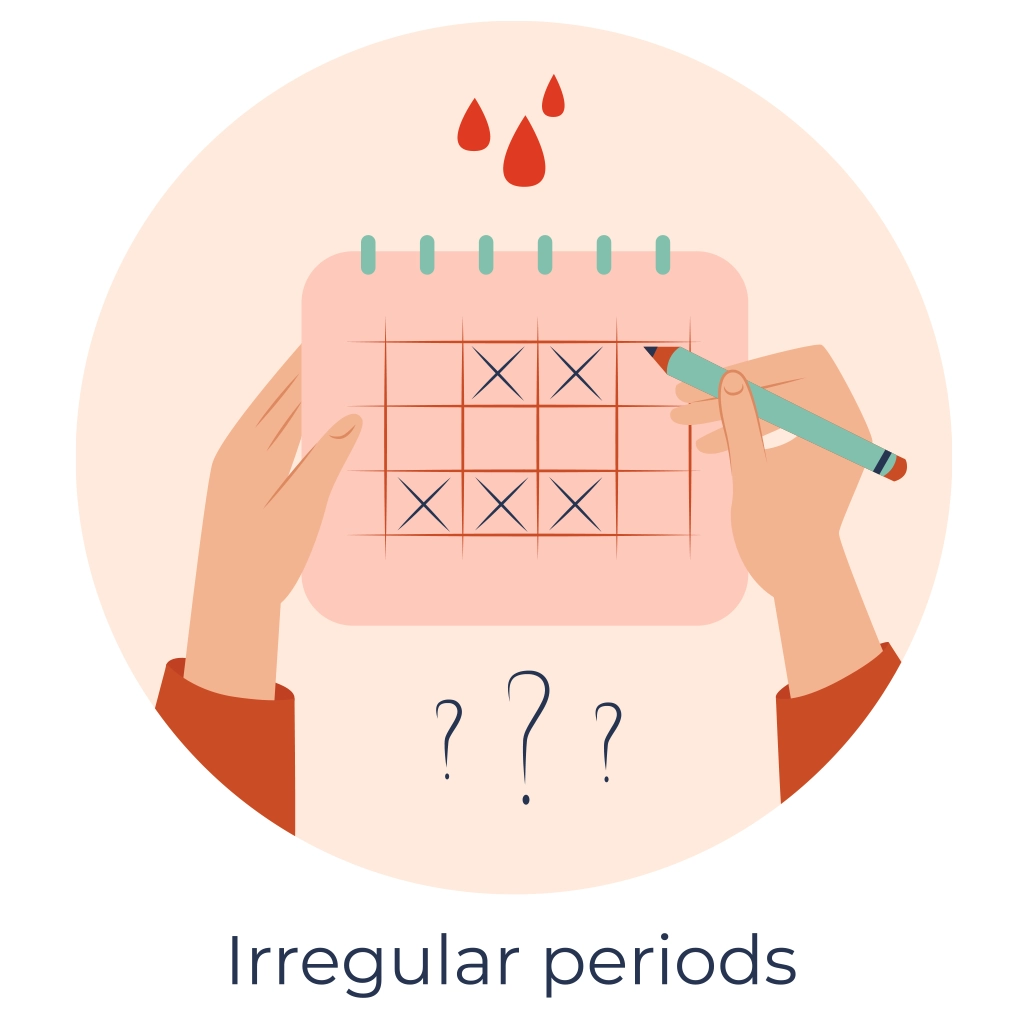
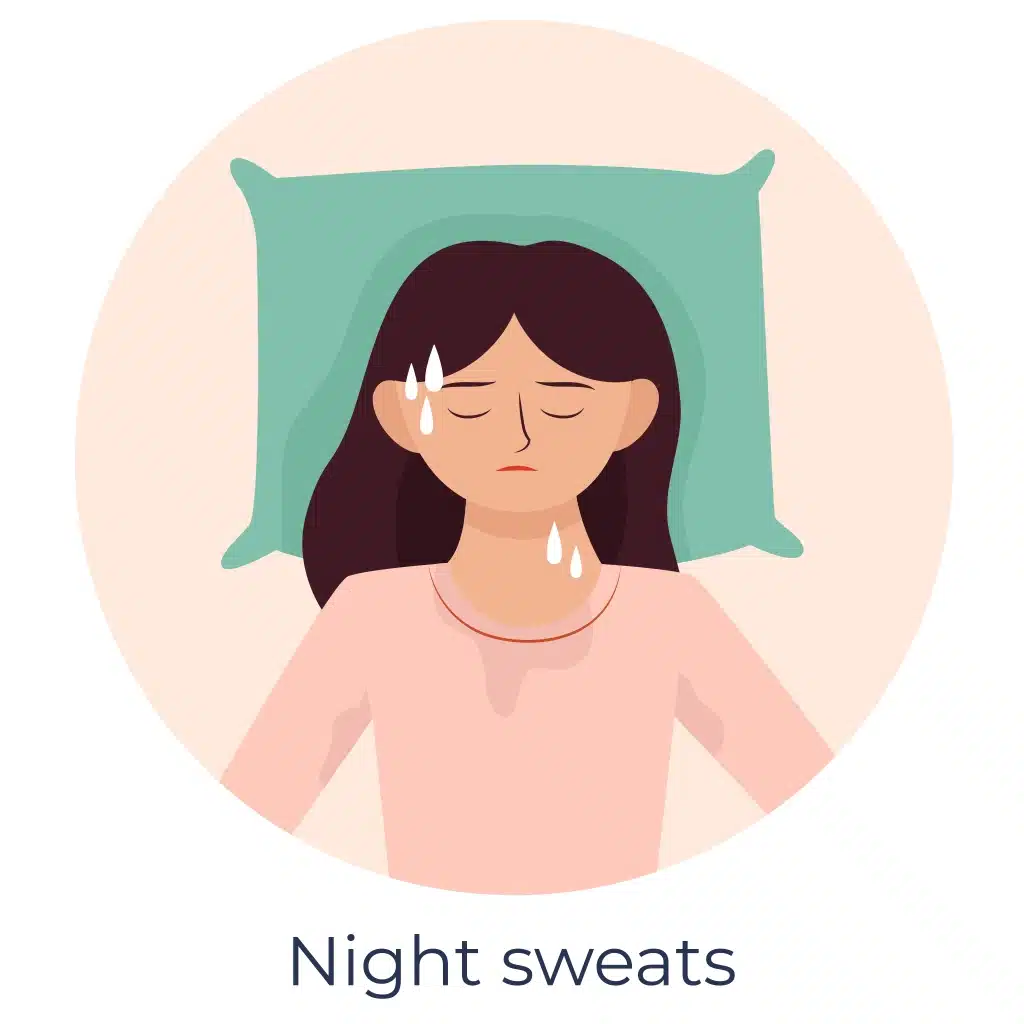
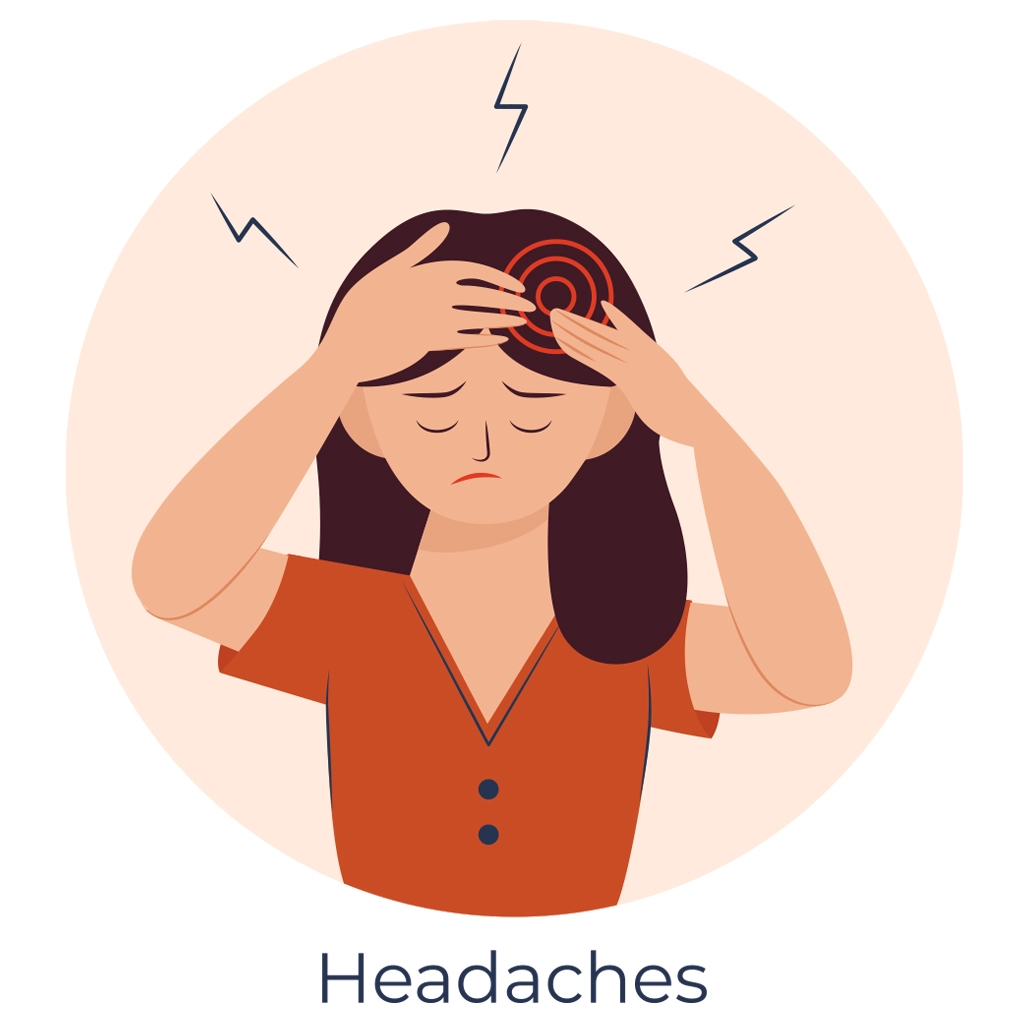
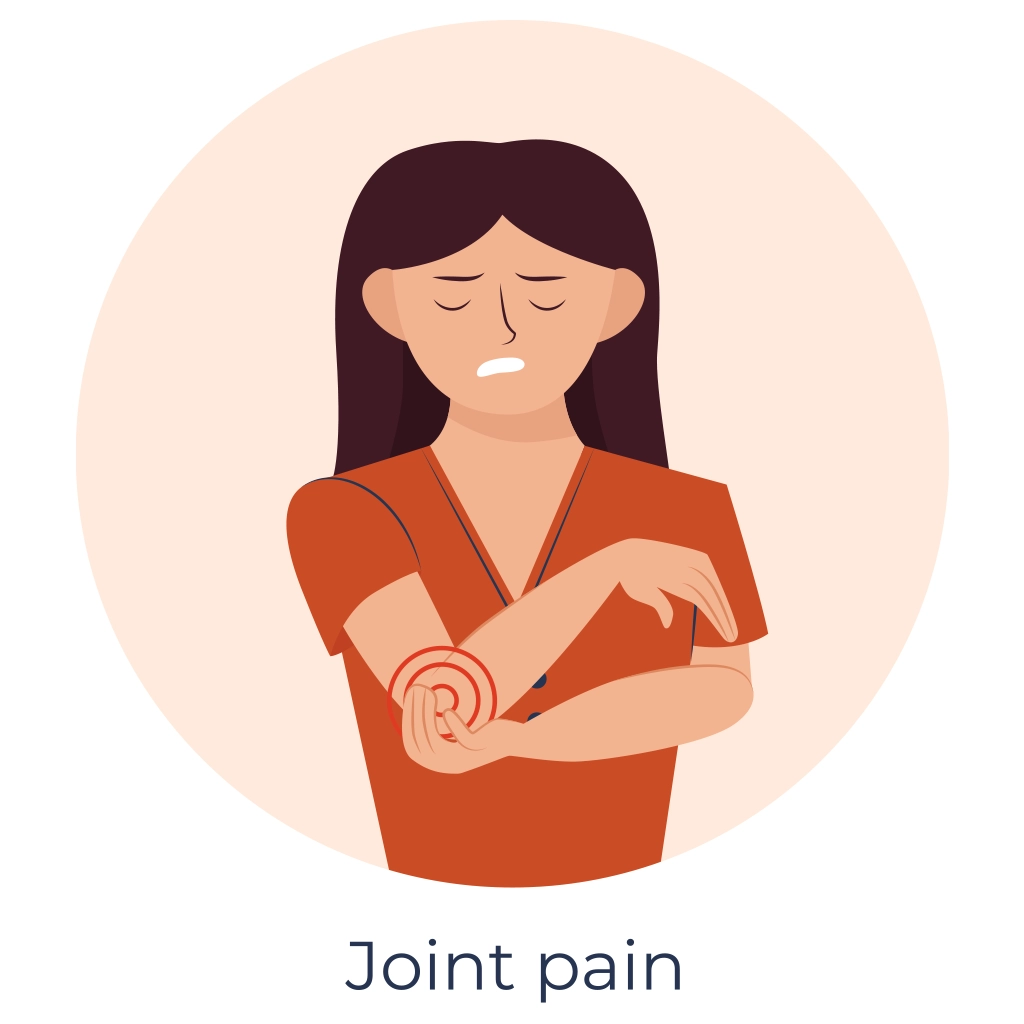
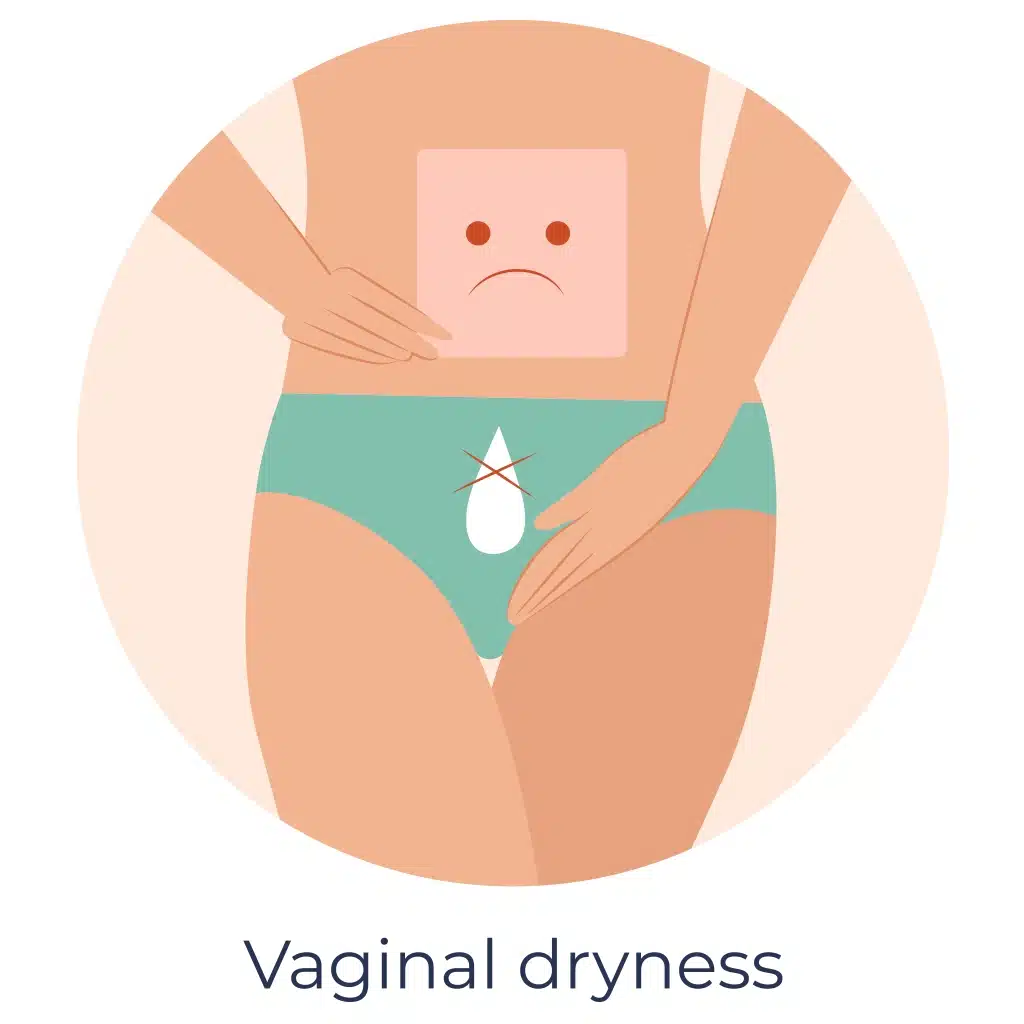
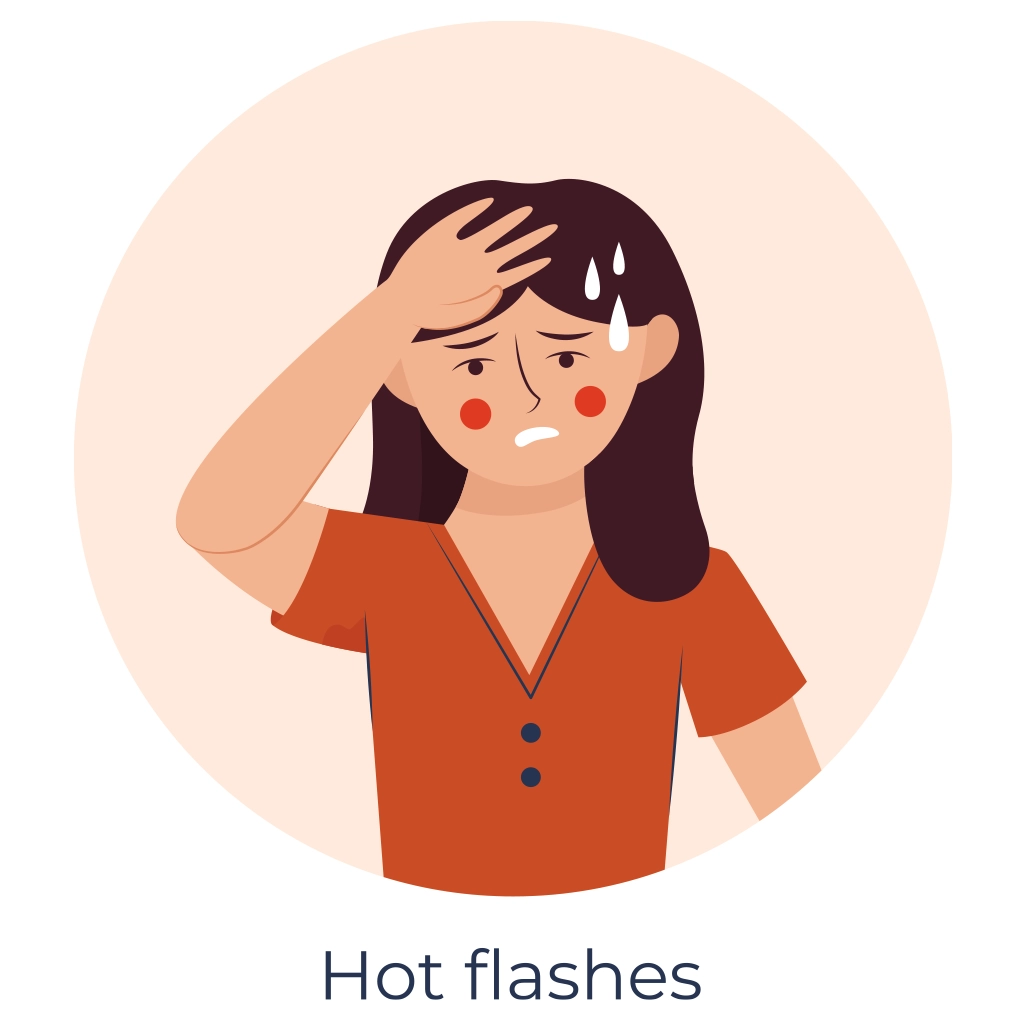
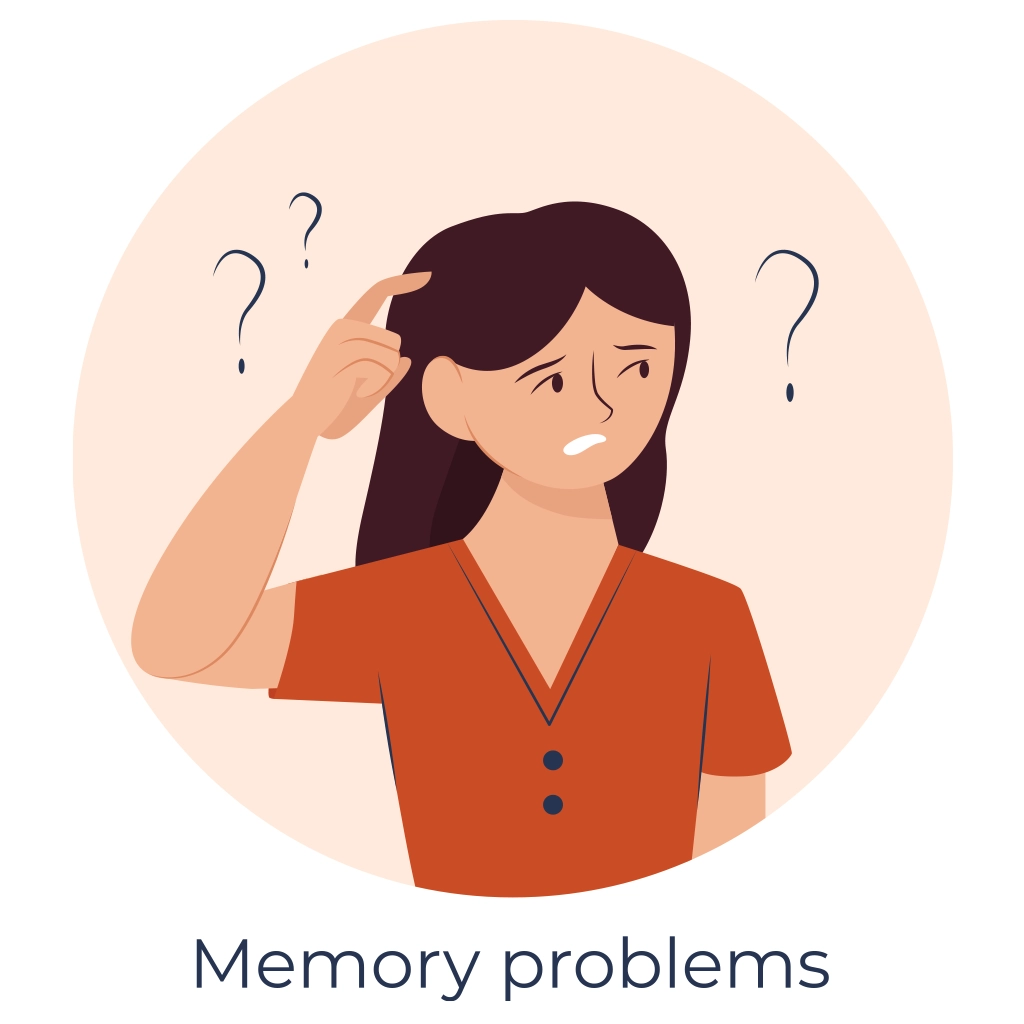
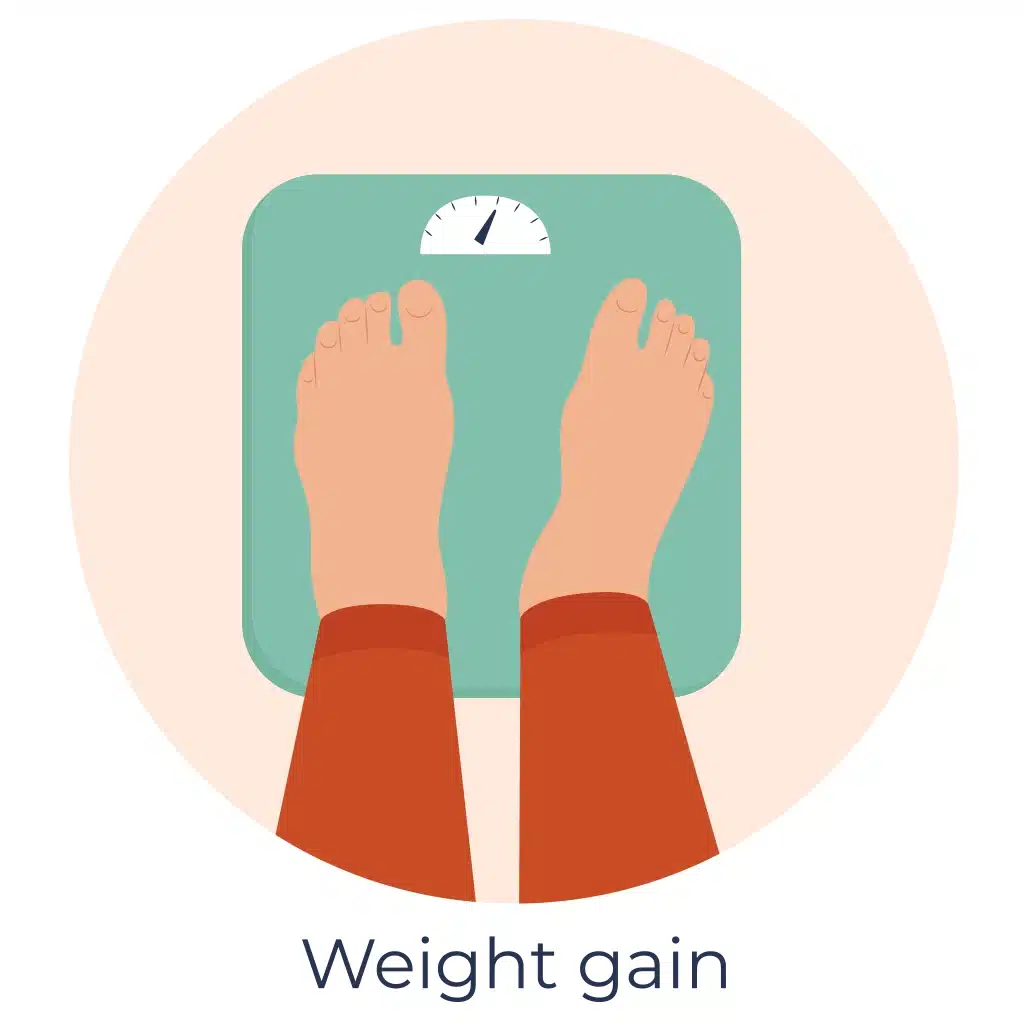
Who should check their hormones?
Hormonal imbalance can affect people of all ages and often leads to various health issues. People who may benefit from hormone testing include those experiencing health problems or unusual bodily conditions, such as:
- People over 40 years old, especially those going through menopause, as hormonal imbalances are common at this stage.
- Mood swings
- Difficulty sleeping or waking up feeling unrefreshed
- Reduced energy, fatigue, and weakness
- Irregular periods
- Slower metabolism, weight gain
- Decreased sexual function
- Acne or skin issues, such as rough or sagging skin
- Bone thinning or osteoporosis
- Depression or chronic stress
- Unexplained, recurring symptoms without clear cause
These symptoms can often be signs of hormonal imbalance, which can be addressed through testing to identify any underlying causes.
Hormone Level Testing for Women and Men
Hormone level testing helps assess various conditions related to different age groups. Hormones play a crucial role in regulating bodily functions, impacting health, aging, happiness, stress, metabolism, growth, mood, and skin health.
An imbalance in hormones can lead to poor health and may contribute to symptoms such as fatigue, exhaustion, depression, or insomnia.
Hormone level testing provides insights into the balance of hormones in the body, enabling targeted restoration and improvement of overall health. Hormones are therefore a vital factor influencing both physical and mental well-being.
Hormone Level Testing for Men and Women
Thyroid Hormone (Thyroid Hormone)
- Produced by the thyroid gland located at the front of the neck. It regulates bodily functions. When deficient, it can cause sluggishness, cold sensitivity, dry skin, eyelid swelling, and muscle cramps, as well as constipation.
- Thyroid Stimulating Hormone (TSH): A hormone produced by the pituitary gland that regulates thyroid function.
- Free Thyroxine (FreeT4): The active form of T4 from the thyroid that plays a role in metabolism.
- Free Triiodothyronine (Free T3): The active form of T3 from the thyroid, which also influences metabolism.
Sex Hormones
- Estradiol Hormone (E2): A major estrogen hormone essential for growth and reproductive functions.
- Follicle Stimulating Hormone (FSH): Stimulates ovarian growth in females and sperm production in males.
- Luteinizing Hormone (LH): Stimulates the ovary and testes, important for fertility and reproduction.
- Progesterone: Regulates the menstrual cycle and supports pregnancy in females.
- Testosterone: The primary male hormone, crucial for the development of male characteristics and reproductive functions.
Adrenal Hormones (Adrenal Hormones)
- Cortisol: A stress hormone produced by the adrenal glands. High or prolonged stress can lead to adrenal fatigue.
- DHEAs: Produced by the adrenal glands and supports immune function, also serving as a precursor to male and female sex hormones (testosterone and estrogen).
Growth Hormone (Growth Hormone)
- Insulin-like Growth Factor-1 (IGF-1): Important for growth, helping tissues and organs grow during childhood. It also aids in tissue repair and maintenance in adulthood.
Prostate-Specific Antigen (PSA)
- A protein produced by the prostate. High levels can indicate prostate cancer, and PSA testing is commonly used for prostate cancer screening.
These hormone tests help assess imbalances that could affect various aspects of health, including metabolism, reproduction, stress response, growth, and even risk for certain cancers.
Hormone Level Testing Package at MOUSAI WELLNESS CENTER
Female Hormone Testing – 11 items:
1. Thyroid Hormones (related to metabolism):
- TSH (Thyroid Stimulating Hormone): Measures thyroid function.
- Free T3: Active form of T3 thyroid hormone, free and ready for action in the body.
- Free T4: Active form of T4 thyroid hormone, free and ready for action.
2. Sex Hormones (related to reproduction):
- Estradiol (E2): Growth hormone that plays a role in body changes, ovulation, and reproductive health.
- FSH (Follicle Stimulating Hormone): Stimulates ovarian growth in women and sperm production in men.
- LH (Luteinizing Hormone): Stimulates the ovaries in women and testes in men; also plays a role in fertility.
- Progesterone: Hormone that regulates body development and female characteristics.
- Testosterone: Hormone responsible for physical development and male characteristics.
3. Adrenal Hormones (related to adrenal function, aging, growth, and stress):
- Cortisol: Known as the stress hormone, helps the body respond to stress.
- DHEAs (Dehydroepiandrosterone Sulfate): Hormone related to aging and a precursor for sex hormones.
- IGF-1 (Insulin-like Growth Factor-1): Hormone that promotes growth and tissue repair.
This comprehensive package helps assess your hormone levels in various systems, including metabolism, reproduction, aging, and stress management.
Male Hormone Testing – 12 Items:
1. Thyroid Hormones (related to metabolism):
- TSH (Thyroid Stimulating Hormone): Measures thyroid function.
- Free T3: Active form of T3 thyroid hormone, free and ready for action in the body.
- Free T4: Active form of T4 thyroid hormone, free and ready for action.
2. Sex Hormones (related to reproduction):
- Estradiol (E2): Growth hormone that plays a role in body changes and is involved in reproductive health.
- FSH (Follicle Stimulating Hormone): Stimulates ovarian growth in women and sperm production in men.
- LH (Luteinizing Hormone): Stimulates the ovaries in women and testes in men; also plays a role in fertility.
- Progesterone: Hormone that regulates body development and male characteristics.
- Testosterone: Hormone responsible for physical development and male characteristics.
3. Adrenal Hormones (related to adrenal function, aging, growth, and stress):
- Cortisol: Main stress hormone that helps the body respond to stress.
- DHEAs (Dehydroepiandrosterone Sulfate): Hormone related to aging and a precursor for sex hormones.
- IGF-1 (Insulin-like Growth Factor-1): Hormone that promotes growth and tissue repair.
4. Prostate Cancer Marker:
- Prostatic Specific Antigen (PSA): A biomarker used to detect prostate cancer.
Preparation for the Test:
- Get enough rest.
- No need to fast (water and food can be consumed).
Result wait time: 3 days.

Menopause (สตรีวัยหมดระดู)
การบำบัดสตรีวัยหมดประจำเดือน ด้วยฮอร์โมนสารสกัดจากรก และการรับประทานวิตาเสริมเฉพาะบุคคล จะช่วยให้ร่างกายสดชื่น ลดความเสื่อม ชะลอความชรา
Andropause (Low Testosterone Level)
ชายวัยทอง หรือ ภาวะพร่องฮอร์โมนเพศชาย เมื่อมีอายุมากขึ้น เป็นภาวะที่พบบ่อยในยุคปัจจุบัน สามารถแก้ไข และป้องกันได้ ด้วยฮอร์โมน และวิตามินเสริม
Erectile Dysfunction
ทางเลือกในการรักษาภาวะหย่อนสมรรถภาพทางเพศโดยไม่ใช้ยา มุ่งเน้นการแก้ไขที่ต้นเหตุของปัญหา ไม่ส่งผลเสียต่อร่างกาย และช่วยให้ใช้ชีวิตได้มีความสุขมากขึ้น
Metabolic syndrome
ระบบการเผาผลาญที่ต่ำลง เป็นสาเหตุของการเกิดโรคต่าง ๆ หากตรวจพบ และปรับเปลี่ยนพฤติกรรมได้เร็ว จะช่วยป้องกันการเกิดโรคเรื้อรังต่าง ๆ ในอนาคต
Muscle Builder
พยายามเพิ่มมวลกล้ามเนื้อให้ร่างกาย แต่ก็ไม่ได้ผล การใช้ฮอร์โมนบำบัดภายใต้คำแนะนำของแพทย์ จะช่วยให้ท่านประสบความสำเร็จในการสร้างกล้ามเนื้อได้เร็วขึ้น
Adrenal Fatigue
อ่อนเพลีย เหนื่อยล้า อยากพักตลอดเวลา เป็นภาวะที่เกิดจากการต่อมหมวกไตทำงานหนักเป็นเวลานาน และเหนื่อยล้า จนเกิดภาวะต่อมหมวกไตล้า
Subclinical Hypothyroid
ผู้ที่มีภาวะพร่องฮอร์โมนไทรอยด์ มันอ้วนฉุ ลดความอ้วนยา สามารถแก้ไขได้จากการปรับพฤติกรรม ทานวิตามินบำรุง และเพิ่มฮอร์โมน โดยต้องอยู่ภายใต้การดูแลจากแพทย์

